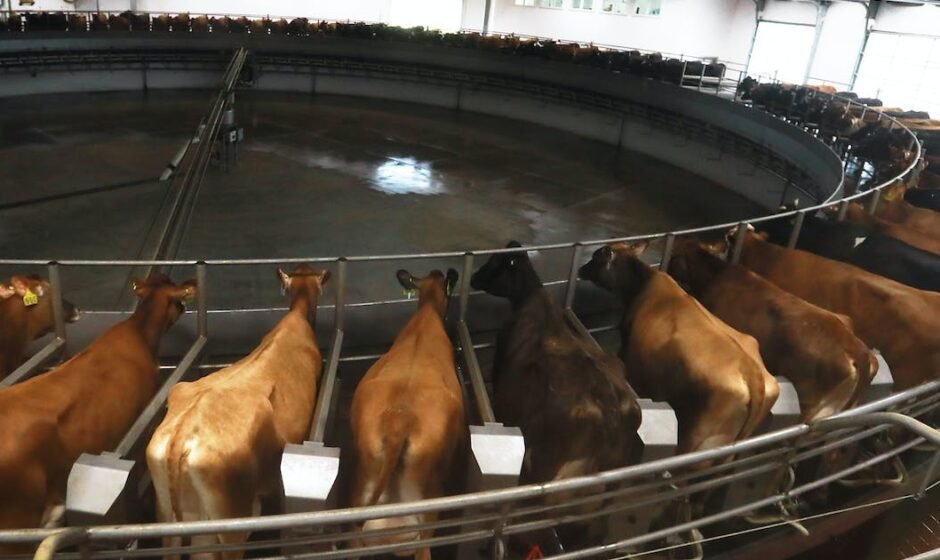A recent meeting at a bar in Benson, western Minnesota, saw citizens raising concerns about a natural gas pipeline project. The pipeline aims to transport biogas emitted by dairy cows for use as green energy. While some attendees asked questions about right-of-ways and potential natural gas hook-ups, others expressed worries about how the project could further divide small or medium-sized farmers from the state’s largest dairies.
Elaine Mittenness, a neighboring farmer, questioned whether the project would improve the unpleasant odor emanating from the nearby dairy farm. Amp Americas, an Illinois-based company, is constructing processing facilities for renewable natural gas at four farms in western Minnesota. These farms are owned by Riverview, the largest dairy in the state.
Amp Americas captures methane from livestock waste and converts it into natural gas. The gas is then transported by Dooley’s, a small company based in Willmar, to the Alliance Pipeline system that runs from British Columbia to Chicago. Dooley’s plans to build a 28-mile pipeline through three counties: Chippewa, Kandiyohi, and Swift. The pipeline is estimated to cost around $13.9 million.
Dooley’s filed an application for a route permit with the Public Utilities Commission (PUC) in September. However, only a small portion of the pipeline requires PUC approval. Local approval will also be necessary, according to owner Randy Dooley. If everything goes according to plan, pipeline construction will begin later this year, with the pipeline expected to open in August.
Amp Americas did not provide many details about the project, but Andy Dvoracek, the company’s vice president of business development, gave an overview to the Kandiyohi County Board of Commissioners in October. Dvoracek stated that the project was fully funded and under construction. He explained that anaerobic digesters, resembling large silos, would be built at each farm, along with gas plants taking up about an acre of land.
The gas produced can generate credits in markets for reducing carbon emissions. Amp Americas sells gas for transportation in California, which represents the largest market for the company. In filings with the PUC, Dooley’s stated that the project would have beneficial effects by turning manure gas into renewable natural gas instead of releasing it into the atmosphere.
The gas produced from livestock waste is also valuable to natural gas utilities in Minnesota aiming to reduce carbon emissions. Xcel Energy, for example, plans to spend $3.5 million to purchase a small percentage of environmental attributes generated by Amp Americas in a 5-year agreement.
However, some farming and environmental groups in rural Minnesota are concerned that converting waste from large dairies into a profit stream will further concentrate the farming industry. They worry that independent farmers will face tougher competition, and waterways will be further polluted by cow manure used as fertilizer. Anne Borgendale, communications director for CURE, an environmental group, emphasized that the issue goes beyond the pipeline.
The use of manure digesters has long been established in the European Union, where dairy farmers convert methane gases into energy instead of applying cow manure onto fields. Professor Roger Ruan from the University of Minnesota highlighted the potential benefits of this technology, stating that much of the nutrients in manure are lost and end up polluting streams and waterways.
Although more than 600 digesters operate in Europe, only 14% of the world’s systems are in the United States. A separate venture in Stearns County, Minnesota, aimed to build large digesters for biogas production but folded after the parent company, Shell, suspended development in the US.
Methane emissions from cows contribute to global warming, making digesters an environmentally friendly solution for Minnesota’s polluted waterways and air. During the meeting, a local resident asked about the possible decline in land value due to the pipeline. Dooley responded by saying that any impact on property would be positive.




